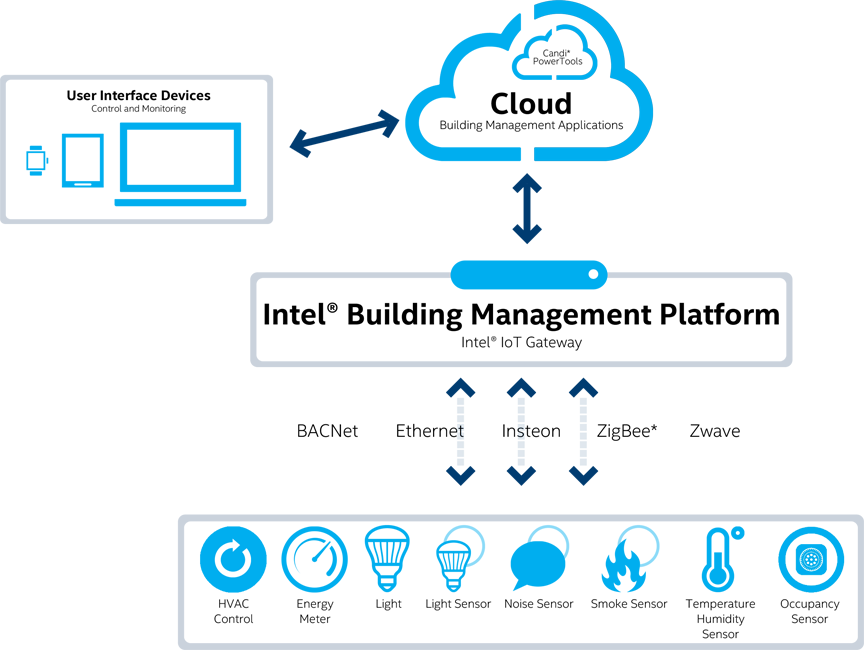While this industry has been on a journey of increased visibility and openness between systems, the adoption is slowed by the complexity and thus deployment costs.

Christine Boles,
Director, Smart Building Solutions
Intel
|
September 2016 |
[an error occurred while processing this directive] |
Leveraging
IoT Solutions to Make Commercial Buildings “Smarter”
While this industry has been on a journey of increased visibility and openness between systems, the adoption is slowed by the complexity and thus deployment costs. |
 Christine Boles, Director, Smart Building Solutions Intel |
| Articles |
| Interviews |
| Releases |
| New Products |
| Reviews |
| [an error occurred while processing this directive] |
| Editorial |
| Events |
| Sponsors |
| Site Search |
| Newsletters |
| [an error occurred while processing this directive] |
| Archives |
| Past Issues |
| Home |
| Editors |
| eDucation |
| [an error occurred while processing this directive] |
| Training |
| Links |
| Software |
| Subscribe |
| [an error occurred while processing this directive] |
According
to Gartner,
smart commercial buildings will be the sector with the
highest use of Internet of Things (IoT) technology in the next year.
Why? IoT applied to buildings makes it easier to solve real operational
issues with greater insight within and between building systems. As
more buildings adopt IoT solutions, more property owners in commercial
real estate could be pressured to update their properties in order to
stay competitive within the marketplace and meet occupant expectations.
While this industry has been on a journey of increased visibility and
openness between systems, the adoption is slowed by the complexity and
thus deployment costs. Ultimately, IoT solutions makes data more
visible and useable between systems. With an ecosystem of solutions on
its open standards-based platform, the Intel Building Management
Platform (BMP) is addressing these concerns by working with a
number of
different IoT solution providers to deliver tailored solutions for
small – and medium – sized buildings. Intel’s smart building solution,
integrated with Candi PowerTools, provides a secure, management
platform that allows applications seamlessly access to things and the
data they generate within smart buildings. This will improve building
visibility and manageability, giving owners the tools they need to
reduce operational costs, increase energy efficiency and satisfy tenant
needs.
Intel Building Management Platform
(BMP) – How it works:
Intel offers a breadth of hardware and software products to its ecosystem of solution providers and integrators who create and install end-to-end solutions for smart buildings
To make it even easier for IoT application in buildings, Intel developed the Intel BMP. This platform connects to a broad set of systems and sensors within the building, and then takes the data it collects, filters it, and securely transfers it to the cloud (or on-premise) servers while facilitating required protocol translations needed in between. Since the system is pre-integrated and connected, it reduces development time and effort for solution providers and enables them to deploy a wide range of applications.

When considering moving to
an IoT system,
consider the following benefits:
Although there are many building automation systems already in use in commercial buildings, they often control different building assets like lighting, HVAC and security through completely separate entities. This can complicate building management due to a combination of incompatible systems with different interfaces.
Taking an IoT approach brings the data out to the applications that can use them now and applications that will be added in the future. For example, Intel BMP enables its solution providers like Lucid to connect and collect data from a broad set of legacy systems and sensors, using data securely collected and presented in a cloud.
When building systems are connected seamlessly and actively collecting and transmitting data, building management interfaces like the Lucid BuildingOS® empower building operators with detailed insights on building performance. As a result, staff members are equipped with real-time analysis based on interoperable systems, enabling them to make quick, data-driven decisions that will contribute to the bottom line.
2. Cut utility
costs with energy efficient programs
According to the EPA, 30 percent of the energy used in an average U.S. commercial building is wasted, providing a huge incentive to reduce energy consumption. The EPA’s Building Technologies Office (BTO) is targeting a 20 percent energy-use reduction in commercial buildings by 2020, and even greater savings by 2030.
When building assets are not monitored, owners and operators may find
themselves facing wasted energy, time, and productivity. All three
contribute to a rise in operating costs that can cripple profitability.
IoT can help address this by making it easier to add sensing or gather
asset information that can be analyzed and translated into necessary
actions to improve energy utilization.
[an error occurred while processing this directive]3. Increase
efficiency and
reduce maintenance costs
If scheduled maintenance only occurs after a system fails, repair costs and lost time quickly add up. Analysis of building system data makes predictive maintenance possible, alerting owners and operators to potential equipment issues before they happen.
Too often, building and property managers are using data
that is
out-of-date to make decisions. Use of IoT solutions to gather
data, and analyze can help drive actionable decisions to quickly put in
a maintenance request or order a new device before a system fails,
significantly reducing time and cost.
4. Improve Business Productivity
Intel’s ecosystem provides a breadth of solutions today. To accelerate the focus on the application and use of the data from across systems, Intel BMP will be made available generally starting October 5. By taking advantage of smart building solutions using Intel® BMP, building managers can improve efficiencies for sustainable operations and productive businesses for tenants of small and medium-sized properties.
To learn more about the Intel’s IoT solutions for smart buildings,
please visit http://www.Intel.com/iot/smartbuilding
[an error occurred while processing this directive]
[Click Banner To Learn More]
[Home Page] [The Automator] [About] [Subscribe ] [Contact Us]